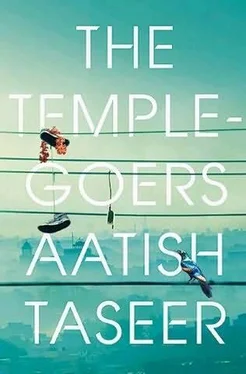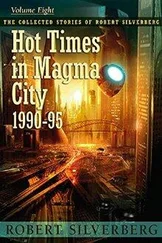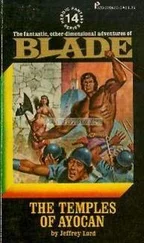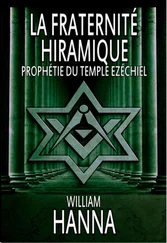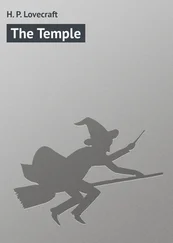‘Nothing,’ Megha replied jauntily. ‘Just that I was sleeping the night at my friend’s house.’
As we drove into the colony, past the community centre, Megha asked me how the food had been.
‘Very good,’ I replied.
‘You would say that. But it must not have been “very good” because not many are eating.’
‘What are you talking,’ Aakash exploded, ‘we’ve fed some six hundred.’
‘Oh, so you’re counting,’ Megha said, and laughed.
We returned to find that the power was back and the jagran was beginning. Bejewelled women, clutching their saris, rushed towards the tent. Aakash ran upstairs to try on the kurta Megha had designed and stitched for him in the lipo clinic. As the two of us waited downstairs, Megha explained her family’s position. ‘Now, if my father is going to spend two crore on the wedding, then at least the husband should be making fifty lakhs monthly. No?’ Aakash, I knew – though still a huge amount for a trainer – made only sixty thousand a month: a tenth of that amount.
‘I know!’ Megha cried. ‘Now what to do? Every day my mother comes to me and says, “Such and such person has had a son. And her husband went out and came back with a tempo full of stuffs. Refrigerator, microwave, laptop, jewellery, saris – you name it, he bought it.” Imagine how I feel, thinking when I have a son, who will go out and buy a tempo full of stuffs?’ She spoke with such feeling, her eyes beginning to glisten, that it was hard to believe she was talking about electronics and home appliances.
During this sharing of intimacies, I came out with something that had first occurred to me in the car. I had wanted to tell Megha and Aakash then, but had been prevented by some inexplicable feeling of loyalty. But now, fully won over by the cause of their marriage, I told Megha about my accidental meeting with her brother in Lodhi Gardens.
‘That bloody homo,’ she whispered viciously, ‘let him try. Kill me? I’ll make keema out of him and each of his little yellow-fingered friends.’
And though it had seemed a real threat at the time, returning now as an echo from Megha’s lips, it seemed absurd. Of the two, she was without a doubt the more unsinkable. She muttered angrily to herself for a few moments, and then, as if it were too much for her to contain, started yelling, ‘Aakash! Aakash! Listen to what Aatish is telling me my fajjot brother has been saying.’
‘Megha, no, listen,’ I said quickly, ‘don’t tell Aakash.’
‘Why?’
‘He’ll just get worked up over it. And there’s no knowing what he might do.’
I wasn’t sure myself why I didn’t want him to know. I think, bizarre as it might sound, that I had a superstitious fear of his dormant Brahmin’s powers.
And perhaps some of my nervousness was felt by Megha too, because when Aakash appeared, bare-chested on his balcony, having heard her voice but not what was actually said, she didn’t repeat herself.
‘Bas, nothing,’ she said, ‘we’re coming up.’ She gestured to me to follow her and marched up the stairs. At the first landing, in part perhaps from fatigue, she swung around and said, ‘And by the way, one other thing. My father, he doesn’t know that that brother of mine is a chakka.’ She used the Hindi word for hitting a six in cricket, which also meant eunuch, and flicked her wrist effeminately. ‘But he’s got a pretty good idea. If he finds out, he’ll not just cut him out of the will, he will also kill that half-starved gandu.’ With this, she swung back around and climbed the remaining steps.
In the now empty flat, Aakash walked around in his towel, his hair wet and messy. His nipples were small and high, and his body, expansive and well made. We followed him to the end of the flat, past cluttered sideboards where a telephone table, tooth mug and bedclothes were stacked close together. The kurta, a VIP kurta with a gold and white collar, lay on his bed. Aakash vanished, only to reappear a moment later in just a pajama, the drawstring hanging out.
‘Tie it, no?’ he said to Megha, seeming to enjoy the execution of this intimate gesture in my presence. Then he put on the kurta over the grey vest he always wore and experimented with hairstyles, messy, the eighties, which Megha vetoed instantly, settling in the end for something in between.
Megha looked adoringly at him and said, ‘Aakash, you’re looking very black today.’
Aakash looked hard at himself and replied, ‘Appu! Why do you say such things! It’s because I haven’t slept. You know, whenever my sleep is incomplete, I look blacker.’ Then scrutinizing his reflection, he added, ‘Actually, I’m not looking black. It’s your imagination. Sir, am I looking black?’
‘No,’ I replied.
Megha glowered at me, then smiled and produced some of the other things she had made for him from the green metal cupboard.
‘Pure linen,’ she said, showing me a short-sleeved shirt with many little pockets and straps, ‘and all for rupees five hundred. If you went to Giovanni, the same thing would be two thousand. No point spending too much on a kurta because he never wears it.’
‘I never wear it,’ Aakash confirmed, still fixing his hair and applying deodorant.
‘Then why to waste money?’ Megha said. ‘This way even if he wears it five times, it’s only rupees hundred each time.’
Downstairs, the tent was almost full. We made our way towards the stage, passing armies of children sitting cross-legged on the floor beside women in bright, hot synthetics. There was a smell of warmth in the tent, but it was not unpleasant. Aakash went to the front of the crowd and began ushering people backwards to make room. He was like a hero among the children, whom he would pick up and swing back, or run at, stamping his feet, causing them to shriek, laugh and retreat. The rest of his family sat solemnly on a white podium – Amit’s wife, the ‘sharp one’, had a pink mobile phone tucked between her legs – where a young boy had begun chanting in Sanskrit into a mike. He was identifying where the ceremony was being performed, beginning with Jambudvip, India, Isle of the Jambul tree, and zooming in on Bharatvarsh, Delhi, and finally, the little colony where we were.
‘What’s the name of this place?’ he asked, hardly taking a breath.
‘Chitrakut,’ the others answered in one voice.
‘Chitrakut,’ he repeated, working it into his incantations.
He was dark-skinned, with a pubescent moustache and pinkish lips. There was a confidence, bordering on a glint in the eye, about him. I thought it came from an awareness of his own fluency, the knowledge that, despite his youth, he uttered powerful things effortlessly, filling the people around him with admiration. As the prayers continued, the senior priest took over and his apprentice began going through the crowd, tying orange threads to our wrists.
At that moment, the master of ceremonies for the evening appeared. He was a great fat man in an off-white shirt with gold rings on his fingers and a gold medallion of Kali around his neck. His teeth were bright orange from eating pan, and like a cross between an Elvis impersonator and an evangelist, he reminded me of medieval friars in Europe, rotund and jovial, with a hint of corruption about him. As people stood close to the durbar, all holding their hands over the pyramid of lamps, a knotted red thread covered in butter and oil was set aflame. Ghee and fire dripped from it. And it was with this oily fire-dropping thread that the MC lit the central lamp. From its flame, men who had been crouched round the podium began lighting the other 107 lamps. Soon they were all flickering contentedly in the light breeze that came through the tent. The MC, who hadn’t said a word so far, now yelled into the mike, ‘Victory to the true durbar!’
Читать дальше
